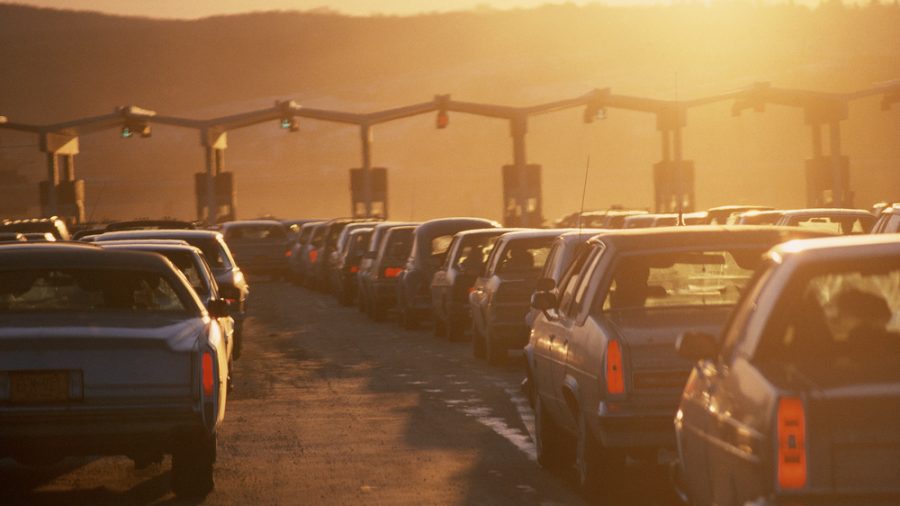Congestion charging could be the future of road pricing in Australia. Road congestion in Australian cities already costs about $16 billion a year, as well as non-economic factors like road rage, frustration and inconvenience. If drivers paid for their own use of roads, it could be fairer – even cheaper – than paying for registration.
How do we pay for roads?
Before changing the way we pay for roads, it is surprising many people do not know how they are paid for now.
Fuel excise makes up nearly half of the average annual road bill. This is based on distance travelled but more fuel-efficient vehicles pay less per kilometre. For example, hybrid vehicle drivers pay little fuel tax even if they drive further – and they still add to congestion. In the table below, the electric BMW driver pays a paltry $260 each year, compared to the 2006 Holden driver’s $928!
| 2006 Holden Commodore |
2015 Toyota Corolla |
2016 BMW i3 (electric) | |
| Fuel economy |
10.9L/100km | 6.1L/100km | 0L |
| Fuel tax | $541 | $303 | $0 |
| Registration |
$387 | $297 | $260 |
| Total |
$928 | $600 | $260 |
Registration fees make up the rest of the bill. But these are not based on usage, nor do they provide any incentive to reduce congestion. Both registration and fuel excise put an unfair burden on low-income households living in outer suburbs (as do tolls charged by private operators on their roads, even when congested).
As the Grattan Institute said, any new charges would have to be designed to manage traffic flows rather than boost revenue. Money raised should be used to fund a discount on registration fees and improvements to public transport.
Peak period charging
One possible method is to charge drivers during peak periods only – the classic congestion charge. An experiment by the Institute of Transport and Logistics Studies found halving registration charges and paying more than 5 cents per kilometre in peak periods could put money back in driver pockets. It also caused a 6% drop in peak traffic (similar to that in school holidays):
- Sydney drivers travel about 4,000kms out of 12,500kms per year in peak hour
- Halving rego saves $200 a year
- 4,000 kms at 5c per km costs $200
- 35% of trips are not commuting and 6% of trips could be made at other times.
Usage based charging
Another method is to charge drivers according to their total use of the roads, not just during peak hours. The Melbourne Road Usage Study tested the effects of charging per trip, per kilometre or charging flat rates for capped kilometres. Note, 40% of respondents preferred the charge per kilometre and the charge per trip was the least favoured of all.
Vehicle tracking
The road usage study installed a GPS in each vehicle to track their behaviour under each condition. Nearly two thirds of participants said they would be happy to have a GPS device in their vehicle all the time.
However, it is not necessary to put a GPS device in every vehicle to implement a user-pays system. For example, distance-based charging relies on the number of kilometres travelled.
Who would pay?
Unfortunately, there are people who have to drive for work and have no choice but to pay. Congestion charging could hurt them. But people who have a choice to avoid peak hours will travel at other times and avoid congestion charges altogether.
For people who must travel a lot for work, distance-based charging would hurt. Other drivers, who have a choice, would be charged by distance travelled but may still not reduce their driving at peak hours.
Whatever system is adopted, the question of fairness arises. User-pays is coming (there is little doubt about that) but how it works – and how much it replaces registration – is still unknown. What do you think about user-pays? Facebook.


your opinion matters: